Chapter three: Tainui is big business
Chapter 3
Tainui is big business
In 1995 Waikato-Tainui received a $170 million land and cash settlement from the Crown. This compensated the wrongful confiscation of more than 1 million acres of tribal land in the 1860s.
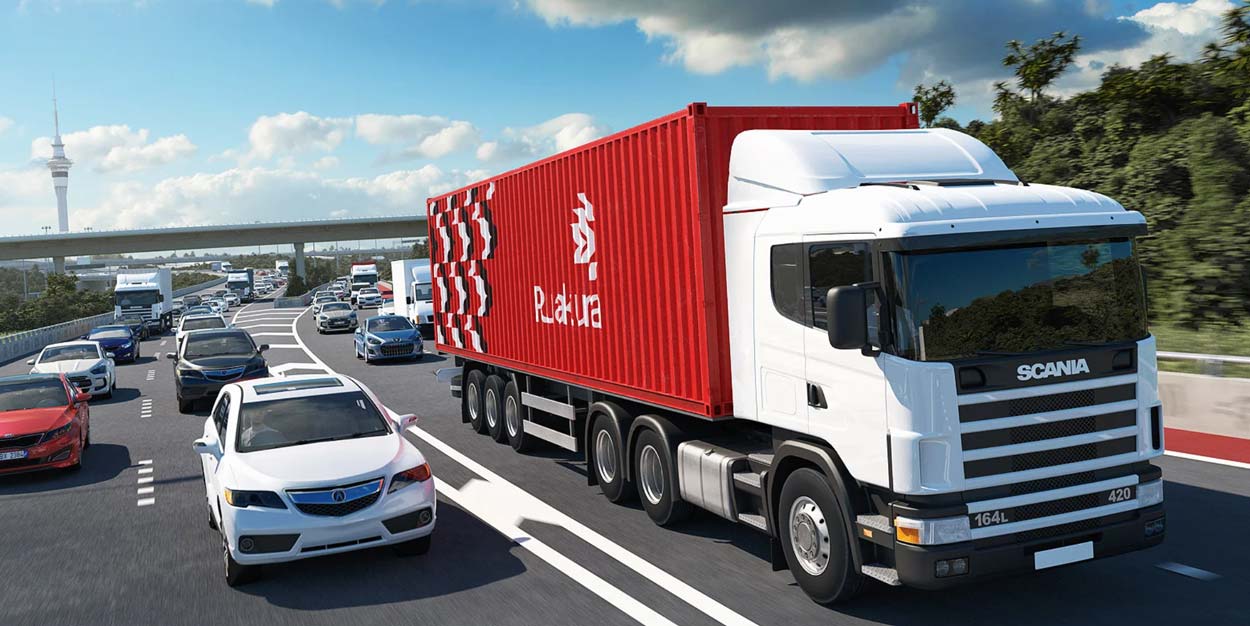
Ruakura a ‘game-changer’
The Ruakura Inland Port will be a future game-changer for Waikato.
When it opens in 2022, it will be a key step in the journey to increase the tribe’s total asset base to more than $6 billion by 2050, producing a cash flow of around $200 million annually.
Ruakura is positioned in the ‘sweet spot’ to stage and transfer containerised imports and exports between Auckland, Hamilton and Tauranga, and offshore trading partners.
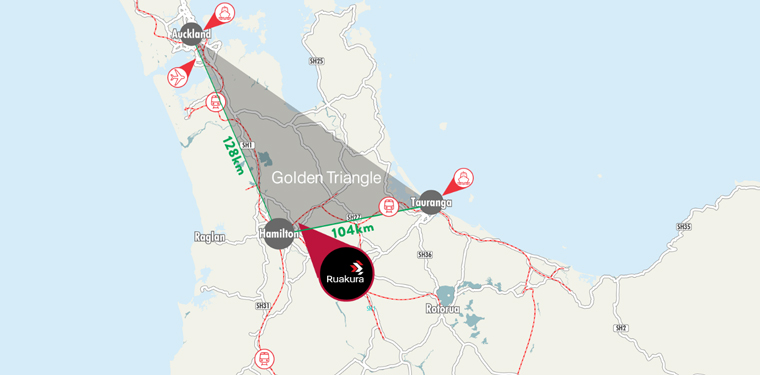
There will be a 30 hectare inland port at the heart of a much larger logistics, industrial and commercial estate, totalling 480 hectares.
Around half of all freight volumes in New Zealand flow between these three centres already. As a midway point, Ruakura will benefit from 60% projected growth in container volumes over the next decade with direct access to Auckland and Tauranga ports via rail and road.
Tapping into this ‘golden triangle’ is a contemporary example of Waikato’s long history of entrepreneurship says Taitimu Maipi, a former Tainui Maaori Trust Board member.
The tribe traded flax with settlers for shipment to Australia in the 1820s. By 1850, the Waikato river was the equivalent of State Highway 1, with waka ferrying the flax along with crops and stock to Auckland markets.
“All across this area were different trading spots like Taupiri. Then people went to Manukau and sailed across the world. There’s nothing new about it,” says Maipi.
Despite the hardship and poverty that followed the New Zealand Wars and confiscation of more than a million acres of land, Taawhiao also worked hard to build an independent economic base through the Kiingitanga by setting up its own parliament, courts, police and bank.
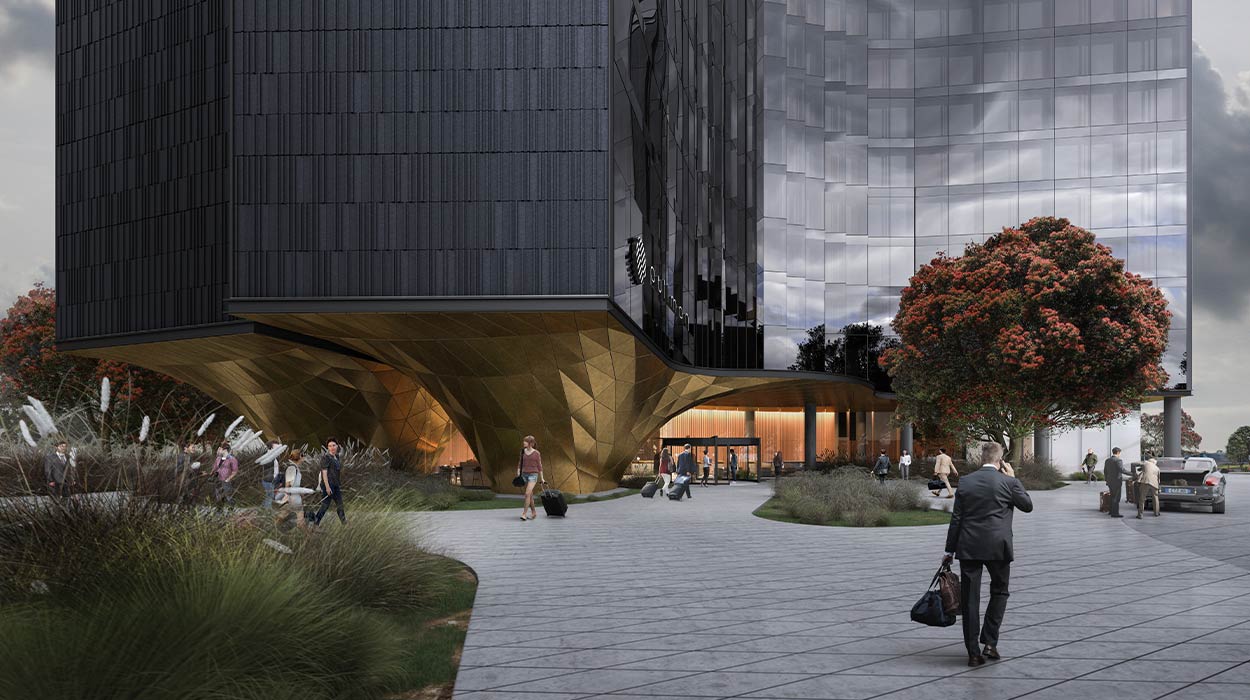
Restoring economic independence
More than a century later, Sir Robert Mahuta saw the Waikato-Tainui treaty settlement as a way of restoring economic independence.
Returned land included ‘blue-chip’ properties that turned Waikato into one of the region’s largest landlords.
The Hopuhopu and Te Rapa properties funded the first dividend of $2,000 paid to each of the Waikato beneficiary marae that signed the Heads of Agreement.
The Tainui Maaori Trust Board also announced its intention to double land holdings every generation until it regained a comparable amount of land to that which had been confiscated.
But poor investment decisions landed the tribe in financial trouble in 1999. The Hongkong and Shanghai Banking Corporation (HSBC) threatened foreclosure when the tribe defaulted on a $14.3 million loan due to failing Australian property developments.
The issue also split the tribe’s leadership, pitting Sir Robert and his supporters against Kingi Porima who chaired the council, Te Tekaumaarua.
Porima was eventually elected to negotiate a way out with HSBC. The Australian holdings and other high-risk assets were sold off, productive properties were retained, investment was diversified and expenditure was reduced.
Tainui Group Holdings (TGH) took over the management and growth of the tribe’s commercial assets, worth $166m in 2003.
Today those assets have increased to $1 billion.
This includes The Base at Te Rapa, the Novotel Tainui in Hamilton and at Auckland International Airport, and the Ibis Tainui Hamilton.
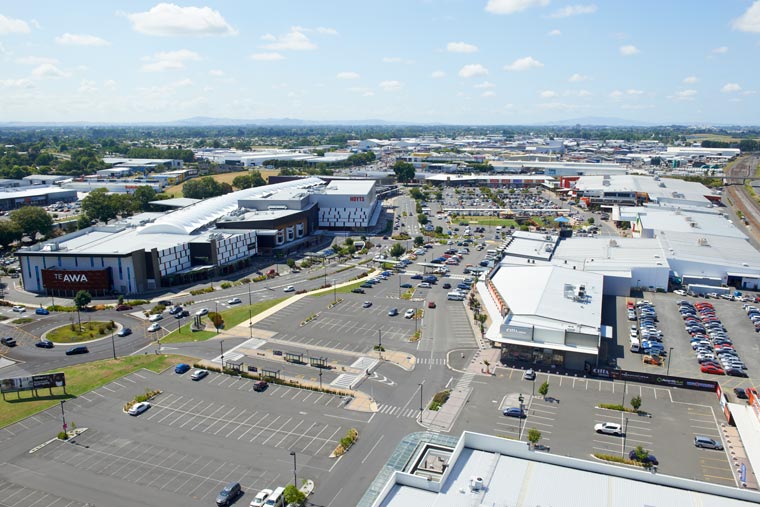
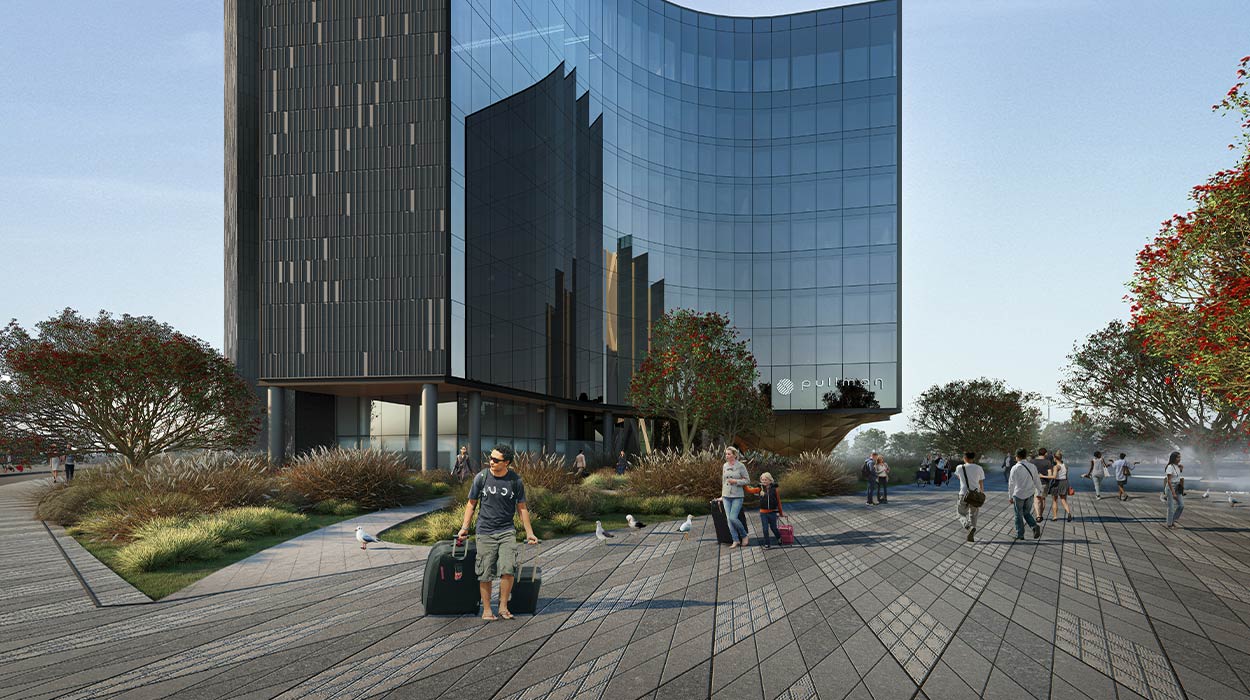
Partnerships are the key
Strategic business partnerships have also been cultivated with the Perry Group, Hamilton City Council, The Warehouse, Auckland Airport, ACC, Accor Hotels and firms that supply design, construction and project services.
Those partnerships have created both earnings and respect for Waikato-Tainui.
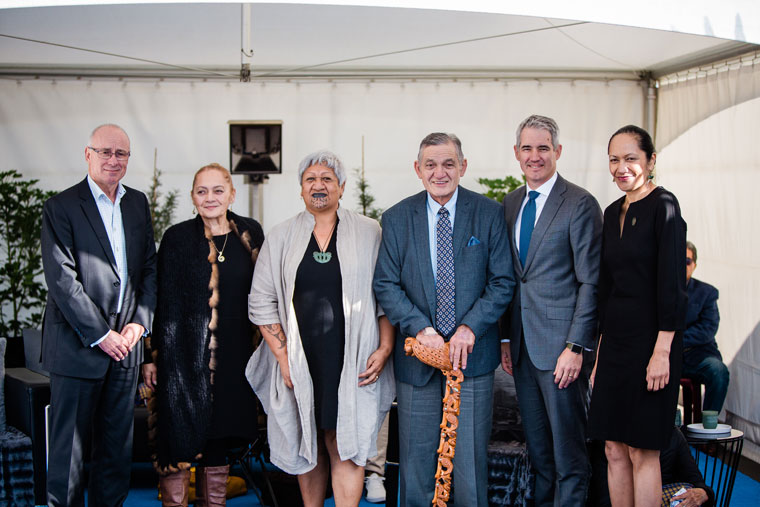
It’s also generated much needed jobs with combined business interests employing more than 4000 people, 1300 of whom are identified as tribal members.
The development of the inland port at Ruakura is also a 50:50 joint venture with Ports of Tauranga, allowing TGH to tap into the expertise it needs to operate the hub.
Chris Joblin, Chief Executive of Tainui Group Holdings says the partnership with Ports of Tauranga gives them a lot of confidence.
“You think about their role within the nation’s supply chain, they are the biggest port so partnering with someone like that with complementary skills to ourselves is really going to accelerate Ruakura.”
Mark Cairns, Port of Tauranga Chief Executive says there is a strong logic to team up with TGH to unlock efficiencies for importers and exporters by utilising Ruakura Inland Port.
“It combines our own expertise in developing and operating ports, the deep regional connections of Tainui Group Holdings and the scale and efficiencies offered by Ruakura and its road and rail connections.”
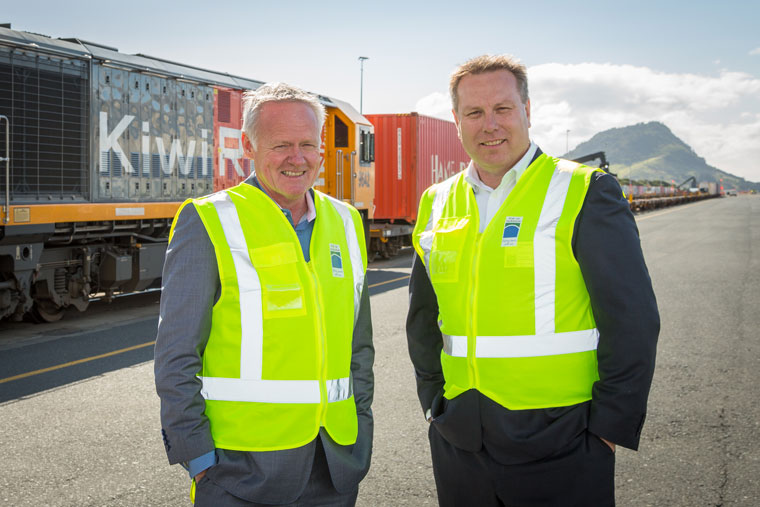
Ultimately, the tribe wants to develop benefits for its people and New Zealand.
In direct terms this includes a TGH policy to return a minimum of 60 per cent of its cash earnings to Lands Trust. This includes the annual dividends for the 68 affiliated marae. By 2045, that could potentially amount to $1 million for some of the larger marae.
The economic shock of the global pandemic COVID-19 may temper the short term returns of the tribe’s commercial arm. But being a long-term investor with strong equity, low debt and a diverse portfolio are expected to help TGH see this through largely intact.
And the development of the Ruakura Inland Port could be one way of ensuring this.
Notes and credits
Waikato-Tainui have chosen to use double-vowels rather than macrons in this feature.
This story was originally published on the Waikato-Tainui Endowed College for Research and Development website Raupatu
‘Tainui is big business’ image: Tainui Group Holdings Limited
‘Ruakura a ‘game-changer’’ image: Tainui Group Holdings Limited
‘Restoring economic independence’ image: Tainui Group Holdings Limited
‘Partnerships the key’ image: Tainui Group Holdings Limited





